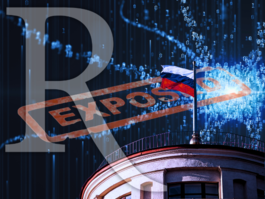Asking The Bombers To Try Again
A Commentary By Dick Morris
In an ABC interview on Monday, Sen. Barack Obama urged us to go back to the era of criminal-justice prosecution of terror suspects, citing the successful efforts to imprison those who bombed the World Trade Center in 1993.
It was key to his attack on the Bush administration, which he charged, has "been willing to skirt basic protections that are in our Constitution . . . It is my firm belief that we can crack down on threats against the United States, but we can do so within the constraints of our Constitution. . .
"In previous terrorist attacks - for example, the first attack against the World Trade Center, we were able to arrest those responsible, put them on trial. They are currently in US prisons, incapacitated."
This is big - because that prosecution, and the ground rules for it, had more to do with our inability to avert 9/11 than any other single factor.
Because we treated the 1993 WTC bombing as simply a crime, our investigation was slow, sluggish and constrained by the need to acquire admissible evidence to convict the terrorists.
As a result, we didn't know that Osama bin Laden and al Qaeda were responsible for the attack until 1997 - too late for us to grab Osama when Sudan offered to send him to us in 1996. Clinton and National Security Adviser Sandy Berger turned down the offer, saying we had no grounds on which to hold him or to order his kidnapping or death.
Obama's embrace of the post-'93 approach shows a blindness to the key distinction that has kept us safe since 9/11 - the difference between prosecution and protection.
Pre-9/11, the priority was what it had always been - to identify the guilty, gather evidence to convict and punish them by imprisonment.
Post-9/11, the goal changed - now it's to identify and frustrate any and all pending terrorist attacks.
Should the effort to stop the attacks lead to arrests and provide enough admissible evidence to incarcerate or deport those responsible, fine. But gathering intelligence - not court-admissible evidence - lies at the core of the mission.
So when we found Jose Padilla - a terrorist planning to build a dirty bomb and explode it in a populated area - we couldn't prosecute him for his plans. We had the evidence, but it hadn't come to us in a form that made it admissible in a criminal court. So we prosecuted him on lesser charges of aiding terrorists by providing them with funds and supplies - something for which we had sufficient admissible evidence.
Would Obama require all our investigations to be conducted within the procedural framework needed to bring a criminal prosecution? That would slow our anti-terror efforts - fatally.
It has before. Following Obama's logic, Attorney General Janet Reno and her deputy, Jamie Gorelick, ruled that evidence seized in an immigration prosecution couldn't be turned over to intelligence operatives investigating terrorism.
The "Gorelick Wall" barred anti-terror investigators from accessing the computer of Zacarias Moussaoui, the 20th hijacker, already in custody on an immigration violation.
He was taking flying lessons in Minneapolis at the time, so we wondered what he was up to. But we didn't look at his computer, and find the e-mail addresses and records of fund-transfers to each of the 9/11 hijackers - information that might well have prevented the attacks.
Our constitutional protections are wonderful and shouldn't be abridged on any account. But the protections in the Fourth, Fifth and Sixth Amendments relate to prosecution under criminal law.
Intelligence that doesn't lead to prosecution isn't covered. But Obama would cover it anyway. He'd require us all to proceed in the way we had to in the halcyon days after the 1993 World Trade Center bombing - procedures that led us to miss the point of what was going on, to fail to identify the real culprits until it was too late and left us unprepared for future attacks.
Views expressed in this column are those of the author, not those of Rasmussen Reports.
See Other Commentary by Dick Morris
Rasmussen Reports is a media company specializing in the collection, publication and distribution of public opinion information.
We conduct public opinion polls on a variety of topics to inform our audience on events in the news and other topics of interest. To ensure editorial control and independence, we pay for the polls ourselves and generate revenue through the sale of subscriptions, sponsorships, and advertising. Nightly polling on politics, business and lifestyle topics provides the content to update the Rasmussen Reports web site many times each day. If it's in the news, it's in our polls. Additionally, the data drives a daily update newsletter and various media outlets across the country.
Some information, including the Rasmussen Reports daily Presidential Tracking Poll and commentaries are available for free to the general public. Subscriptions are available for $4.95 a month or 34.95 a year that provide subscribers with exclusive access to more than 20 stories per week on upcoming elections, consumer confidence, and issues that affect us all. For those who are really into the numbers, Platinum Members can review demographic crosstabs and a full history of our data.
To learn more about our methodology, click here.


